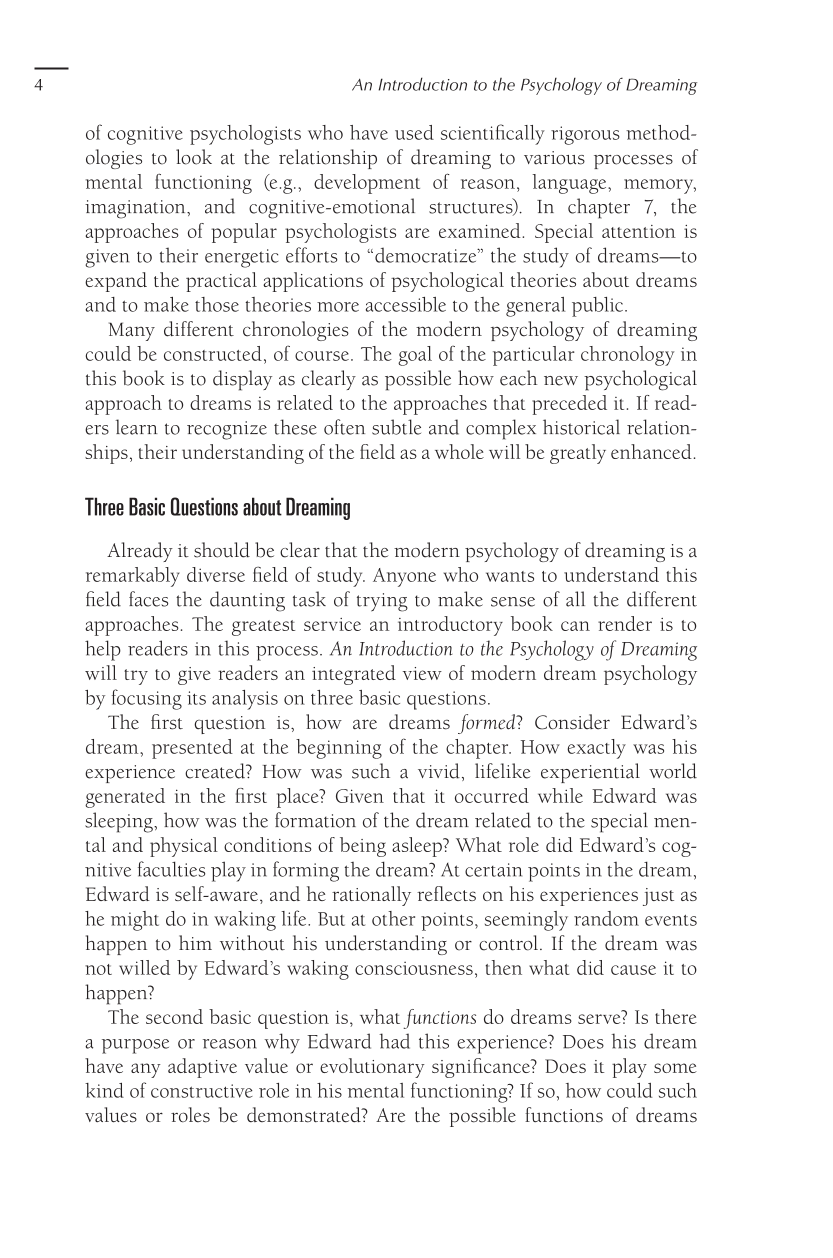4 An Introduction to the Psychology of Dreaming
of cognitive psychologists who have used scientifically rigorous method-
ologies to look at the relationship of dreaming to various processes of
mental functioning (e.g., development of reason, language, memory,
imagination, and cognitive-emotional structures). In chapter 7, the
approaches of popular psychologists are examined. Special attention is
given to their energetic efforts to “democratize” the study of dreams—to
expand the practical applications of psychological theories about dreams
and to make those theories more accessible to the general public.
Many different chronologies of the modern psychology of dreaming
could be constructed, of course. The goal of the particular chronology in
this book is to display as clearly as possible how each new psychological
approach to dreams is related to the approaches that preceded it. If read-
ers learn to recognize these often subtle and complex historical relation-
ships, their understanding of the field as a whole will be greatly enhanced.
Three Basic Questions about Dreaming
Already it should be clear that the modern psychology of dreaming is a
remarkably diverse field of study. Anyone who wants to understand this
field faces the daunting task of trying to make sense of all the different
approaches. The greatest service an introductory book can render is to
help readers in this process. An Introduction to the Psychology of Dreaming
will try to give readers an integrated view of modern dream psychology
by focusing its analysis on three basic questions.
The first question is, how are dreams formed? Consider Edward’s
dream, presented at the beginning of the chapter. How exactly was his
experience created? How was such a vivid, lifelike experiential world
generated in the first place? Given that it occurred while Edward was
sleeping, how was the formation of the dream related to the special men-
tal and physical conditions of being asleep? What role did Edward’s cog-
nitive faculties play in forming the dream? At certain points in the dream,
Edward is self-aware, and he rationally reflects on his experiences just as
he might do in waking life. But at other points, seemingly random events
happen to him without his understanding or control. If the dream was
not willed by Edward’s waking consciousness, then what did cause it to
happen?
The second basic question is, what functions do dreams serve? Is there
a purpose or reason why Edward had this experience? Does his dream
have any adaptive value or evolutionary significance? Does it play some
kind of constructive role in his mental functioning? If so, how could such
values or roles be demonstrated? Are the possible functions of dreams












































































































































































